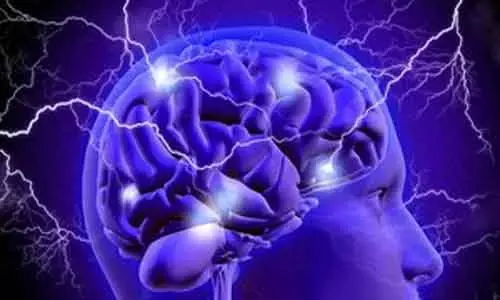- Home
- Medical news & Guidelines
- Anesthesiology
- Cardiology and CTVS
- Critical Care
- Dentistry
- Dermatology
- Diabetes and Endocrinology
- ENT
- Gastroenterology
- Medicine
- Nephrology
- Neurology
- Obstretics-Gynaecology
- Oncology
- Ophthalmology
- Orthopaedics
- Pediatrics-Neonatology
- Psychiatry
- Pulmonology
- Radiology
- Surgery
- Urology
- Laboratory Medicine
- Diet
- Nursing
- Paramedical
- Physiotherapy
- Health news
- Fact Check
- Bone Health Fact Check
- Brain Health Fact Check
- Cancer Related Fact Check
- Child Care Fact Check
- Dental and oral health fact check
- Diabetes and metabolic health fact check
- Diet and Nutrition Fact Check
- Eye and ENT Care Fact Check
- Fitness fact check
- Gut health fact check
- Heart health fact check
- Kidney health fact check
- Medical education fact check
- Men's health fact check
- Respiratory fact check
- Skin and hair care fact check
- Vaccine and Immunization fact check
- Women's health fact check
- AYUSH
- State News
- Andaman and Nicobar Islands
- Andhra Pradesh
- Arunachal Pradesh
- Assam
- Bihar
- Chandigarh
- Chattisgarh
- Dadra and Nagar Haveli
- Daman and Diu
- Delhi
- Goa
- Gujarat
- Haryana
- Himachal Pradesh
- Jammu & Kashmir
- Jharkhand
- Karnataka
- Kerala
- Ladakh
- Lakshadweep
- Madhya Pradesh
- Maharashtra
- Manipur
- Meghalaya
- Mizoram
- Nagaland
- Odisha
- Puducherry
- Punjab
- Rajasthan
- Sikkim
- Tamil Nadu
- Telangana
- Tripura
- Uttar Pradesh
- Uttrakhand
- West Bengal
- Medical Education
- Industry
Double-dose statin treatment may reduce incidence of post-stroke epilepsy

Seizure following an acute stroke occurs infrequently but represents a worrisome development. In a recent study, researchers have found that a double dose of statin treatment during the acute phase of ischemic stroke reduces the incidence of post-stroke epilepsy (PSE). The study findings were published in the journal Seizure on April 14, 2021.
Several in vivo and in vitro studies indicate that statins might reduce the risk of developing epilepsy. However, the effect of different dose of statins on the incidence of post-stroke epilepsy remains unclear. Therefore, researchers of the Hospital of Harbin Medical University, China conducted a study to explore whether a double-dose statin treatment can better prevent the occurrence of PSE.
It was a hospital-based cohort study of 1152 patients with newly diagnosed ischemic stroke between March to August 2017. Among 1152 patients, 1033 were followed up. The researchers assigned them to receive either standard-dose (20 mg atorvastatin or 10 mg rosuvastatin, daily oral; 788 patients) or double-dose (40 mg atorvastatin or 20 mg rosuvastatin, daily oral; 245 patients). They conducted a follow-up after 18 months to compare the incidence of PSE between groups.
Key findings of the study were:
- In the standard-dose group, the researchers observed two cases of early seizure (ES) (0.25%), 22 cases of late seizure (LS) (2.79%) and 20 cases of PSE (2.54%). In the double-dose group, they observed that one patient had ES (0.41%), two patients had LS (0.82%), and one patient had PSE (0.41%).
- They found that the incidence of PSE was significantly lower in the double-dose group as compared to the standard-dose group.
- They also found a higher proportion of PSE in patients younger than 65 years and males.
- They reported that three patients had ES; one presented with focal aware seizure (FAS), and two had focal to bilateral tonic-clonic seizure (FBTCS).
- Among the 21 patients with PSE, they noted two cases of FAS, five cases of focal impaired awareness seizure (FIAS), five cases of FBTCS, and nine cases of GTCS, which implies that partial seizure is the most common type of PSE.
- They also noted that the cerebral cortex was involved in 85.75% of cases with PSE, and multiple lobes were involved in 61.9% of cases with PSE.
The authors concluded, " Increasing the dose of statin treatment during the acute phase of ischemic stroke reduces the incidence of PSE. Further research is needed to understand the mechanisms underlying the potential preventative effects of statins against post-stroke epilepsy (PSE) ."
For further information:
https://www.seizure-journal.com/article/S1059-1311(21)00126-6/fulltext
Medical Dialogues Bureau consists of a team of passionate medical/scientific writers, led by doctors and healthcare researchers. Our team efforts to bring you updated and timely news about the important happenings of the medical and healthcare sector. Our editorial team can be reached at editorial@medicaldialogues.in.
Dr Kamal Kant Kohli-MBBS, DTCD- a chest specialist with more than 30 years of practice and a flair for writing clinical articles, Dr Kamal Kant Kohli joined Medical Dialogues as a Chief Editor of Medical News. Besides writing articles, as an editor, he proofreads and verifies all the medical content published on Medical Dialogues including those coming from journals, studies,medical conferences,guidelines etc. Email: drkohli@medicaldialogues.in. Contact no. 011-43720751


